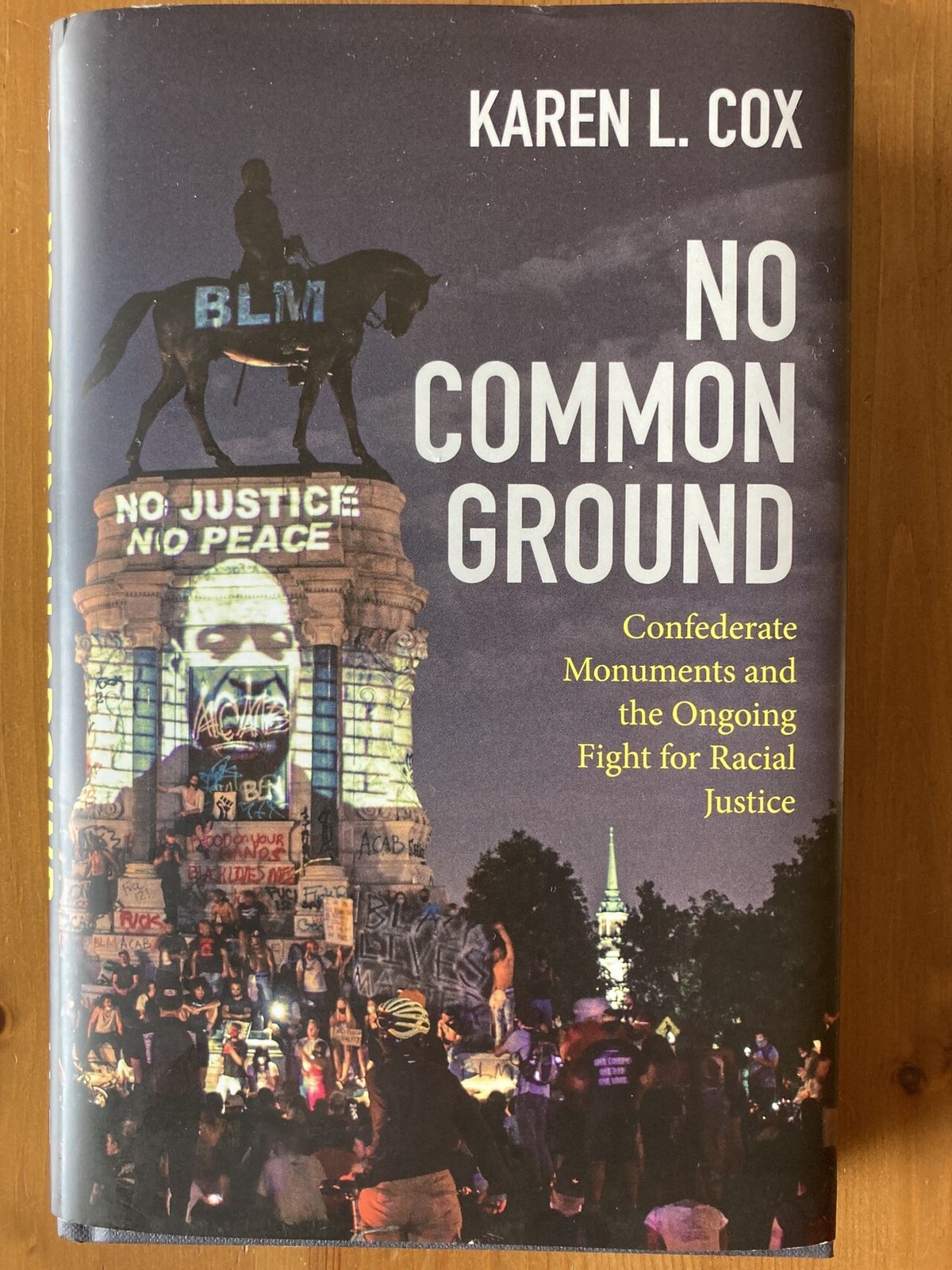
George Floyd, May 25, 2020
A year has passed since a white police officer pressed his knee on the neck of a Black man named George Floyd. The officer has since been convicted of murder. One victory for those who believe that Black lives really do matter.
For several decades, a professor of history named Karen L. Cox has researched white attitudes toward Blacks, especially in the South. George Floyd’s murder spurred her to publish a new book on the preservation of the white culture of the South, which some call Confederate Culture. The starting point is the 1861 formation of the Confederate States of America (CSA) which assembled eleven states where black slavery was legal.
These states fought the North—which remained as the United States of America—and lost in 1865. Slavery was made illegal by an amendment to the U.S. Constitution and freed slaves hoped that they would be given equal treatment as citizens. But they were not.
Among the groups that worked against them was the United Daughters of the Confederacy, a network of white women who remained committed to “Confederate values” and claimed the (white) South should honor its ancestors. The group did this by erecting monuments to Southern soldiers in small towns throughout the South. They raised funds to honor the “noble” white soldiers who fought for a “just cause.”
Even after the murder of George Floyd, there are attempts to “protect” the statues of famous Southerners like Robert E. Lee and Nathan Bedford Forrest, founder of the original Ku Klux Klan (KKK). Supporters of these monuments, busts, and plaques claim they are supporting “Southern heritage.” They talk about “our heritage,” which is the heritage of “whites only.”
That these Confederate symbols remain in public places, honoring white supremacy, is shameful.
(292 words)
See below: The photo on the cover of Karen L. Cox’s “No Common Ground” shows illuminations of BLM, No Justice No Peace, and George Floyd. These images are projected on a monument of Robert E. Lee on horseback. The photo by Jordan Vance was taken in Richmond, Virginia, on June 3, 2020.


